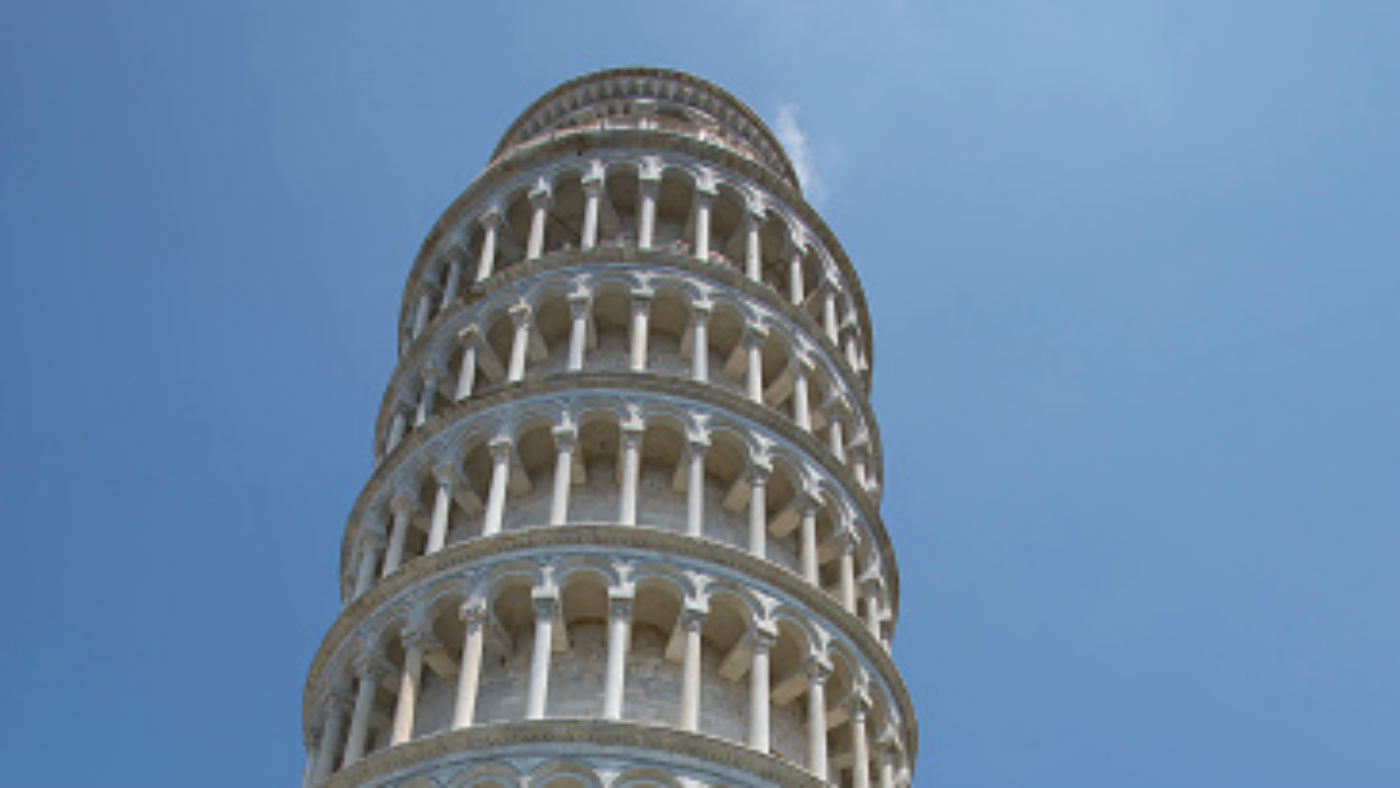Why the Leaning Tower of Pisa is straightening up
The historic Italian structure is slowly losing its tilt following years of preservation work

A free daily email with the biggest news stories of the day – and the best features from TheWeek.com
You are now subscribed
Your newsletter sign-up was successful
Italy’s Leaning Tower of Pisa is half a degree straighter following decades of restorative work that has cost millions, experts have announced.
The famous Tuscan bell tower has tilted ever since it was built, in 1173, because the porous clay soil on which it was constructed is softer on the south side than the north, reports The Guardian.
But now the monument is “very slowly reducing its lean”, according to a surveillance group set up in 2001 by Professor Michele Jamiolkowski, a Polish expert in engineering, to oversee restoration work.
The Week
Escape your echo chamber. Get the facts behind the news, plus analysis from multiple perspectives.

Sign up for The Week's Free Newsletters
From our morning news briefing to a weekly Good News Newsletter, get the best of The Week delivered directly to your inbox.
From our morning news briefing to a weekly Good News Newsletter, get the best of The Week delivered directly to your inbox.
Back in 1990, the iconic structure - which attracts more than five millions visitors a year - was closed to the public amid fears that it was on the verge of toppling. At the time, it was tilting by 4.5 metres (14ft 9in) from the vertical, says the BBC.
It finally reopened 11 years later, following extensive restorations that saw the tilt corrected by 45cm(17.7in) , at a cost of £200m.
Since then, the monument - a symbol of the power of the maritime republic of Pisa during the Middle Ages - has been straightened by a further 4cm (1.6in), the surveillance group has found.
“What counts is the stability of the tower, which is better than initially predicted,” said Nunziante Squeglia, a geotechnics professor at the University of Pisa who works with Jamiolkowski’s team.
A free daily email with the biggest news stories of the day – and the best features from TheWeek.com
“It’s as if it has had two centuries taken off its age,” added surveillance group member Professor Salvatore Settis, of the Italian Academy for Advanced Studies.
The new data shows that the tower is in good health and should be stable for at least 200 years, according to Gianluca De Felice, director of the Opera della Primaziale Pisana, the institution in charge of the monuments in Pisa’s Square of Miracles.
“We can express cautious optimism,” he told CNN.
-
 The Week Unwrapped: Have televised confessions quelled protests in Iran?
The Week Unwrapped: Have televised confessions quelled protests in Iran?Podcast Plus, why has Elon Musk turned from Mars to the Moon? And will the BBC prove to be a puzzles champ?
-
 The week’s best photos
The week’s best photosIn Pictures An Andean god, a rogue squirrel, and more
-
 AI surgical tools might be injuring patients
AI surgical tools might be injuring patientsUnder the Radar More than 1,300 AI-assisted medical devices have FDA approval
-
 Epstein files topple law CEO, roil UK government
Epstein files topple law CEO, roil UK governmentSpeed Read Peter Mandelson, Britain’s former ambassador to the US, is caught up in the scandal
-
 Iran and US prepare to meet after skirmishes
Iran and US prepare to meet after skirmishesSpeed Read The incident comes amid heightened tensions in the Middle East
-
 Israel retrieves final hostage’s body from Gaza
Israel retrieves final hostage’s body from GazaSpeed Read The 24-year-old police officer was killed during the initial Hamas attack
-
 China’s Xi targets top general in growing purge
China’s Xi targets top general in growing purgeSpeed Read Zhang Youxia is being investigated over ‘grave violations’ of the law
-
 Panama and Canada are negotiating over a crucial copper mine
Panama and Canada are negotiating over a crucial copper mineIn the Spotlight Panama is set to make a final decision on the mine this summer
-
 Why Greenland’s natural resources are nearly impossible to mine
Why Greenland’s natural resources are nearly impossible to mineThe Explainer The country’s natural landscape makes the task extremely difficult
-
 Iran cuts internet as protests escalate
Iran cuts internet as protests escalateSpeed Reada Government buildings across the country have been set on fire
-
 US nabs ‘shadow’ tanker claimed by Russia
US nabs ‘shadow’ tanker claimed by RussiaSpeed Read The ship was one of two vessels seized by the US military